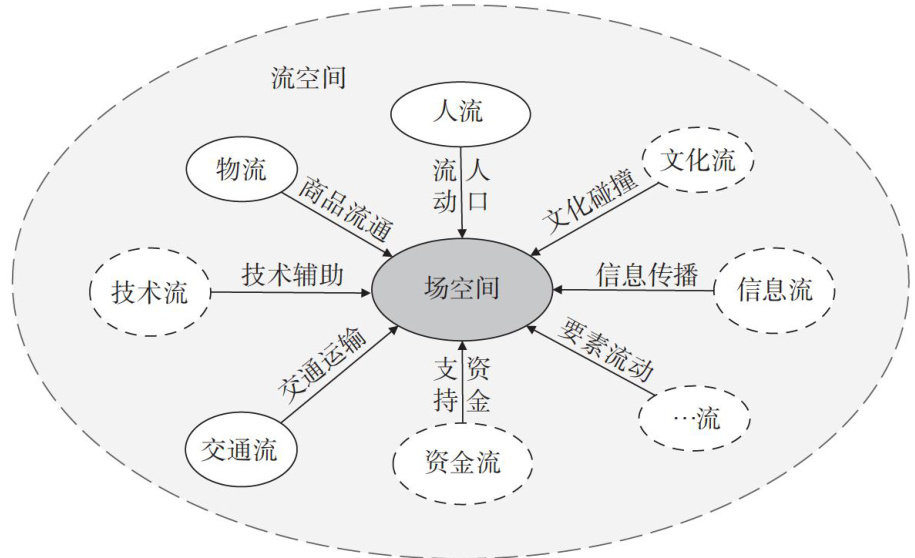流空间理论视域下传统村落转型特征与驱动机制
——以绩溪县龙川村为例


打开文本图片集
关键词:传统村落;流空间;空间转型;驱动机制;文化旅游;乡村振兴;信息技术;活态传承中图分类号:TU98:K901 文献标志码:A doi:10.12415/j.issn.1671-7872.25052
Abstract:The adaptive transformation of traditional vilage flow space guided byscience is not onlya practical requirement for achieving the living inheritance and innovative development of cultural heritage,but also an important topic in rural space reconstruction research in the digital era. Based on the flow space theory framework, Longchuan Village in Jixi County,a typical representativeof Huizhou traditional villages, was taken as an empirical case.Methods such as field research,literature analysis,and semi-structured interviews were combined to analyze the transformation characteristics and driving mechanisms of traditional villages from three aspects: material space, social space,and culturalspace.The results show that under the dual driving forces of digital technology and rural tourism,Longchuan Village is characterizedby functional diversification of material space,diversification of social space subjects,and dynamic preservation of cultural space. The core driving factors are identified as information technology,capital operation,and cultural identity.Information technology is found to reconstructspatial relationships within andoutside the village by accelerating information exchange,capital operation is observed to providecontinuous dynamic support for vilage space transformation,and cultural identity is demonstrated to form an endogenous development mechanism by strengthening the cohesion of social groups.These three factors are revealed to jointly promote village space transformation through dynamic interaction.The analytical framework of characteristics and driving mechanisms constructed in this paper can provide theoretical basis and practical paths for traditional villages to adapt to the new spatial flow paradigm.
Keywords:traditional vilages; space of flows; spatial transformation; driving mechanism; cultural tourism; rural revitalization;information technology; living heritage conservation
党的二十届三中全会将数字乡村作为乡村振兴战略的重要抓手,强调通过数字化赋能破解城乡发展不平衡问题,推动乡村现代化发展,助力实现城乡融合发展。(剩余20351字)